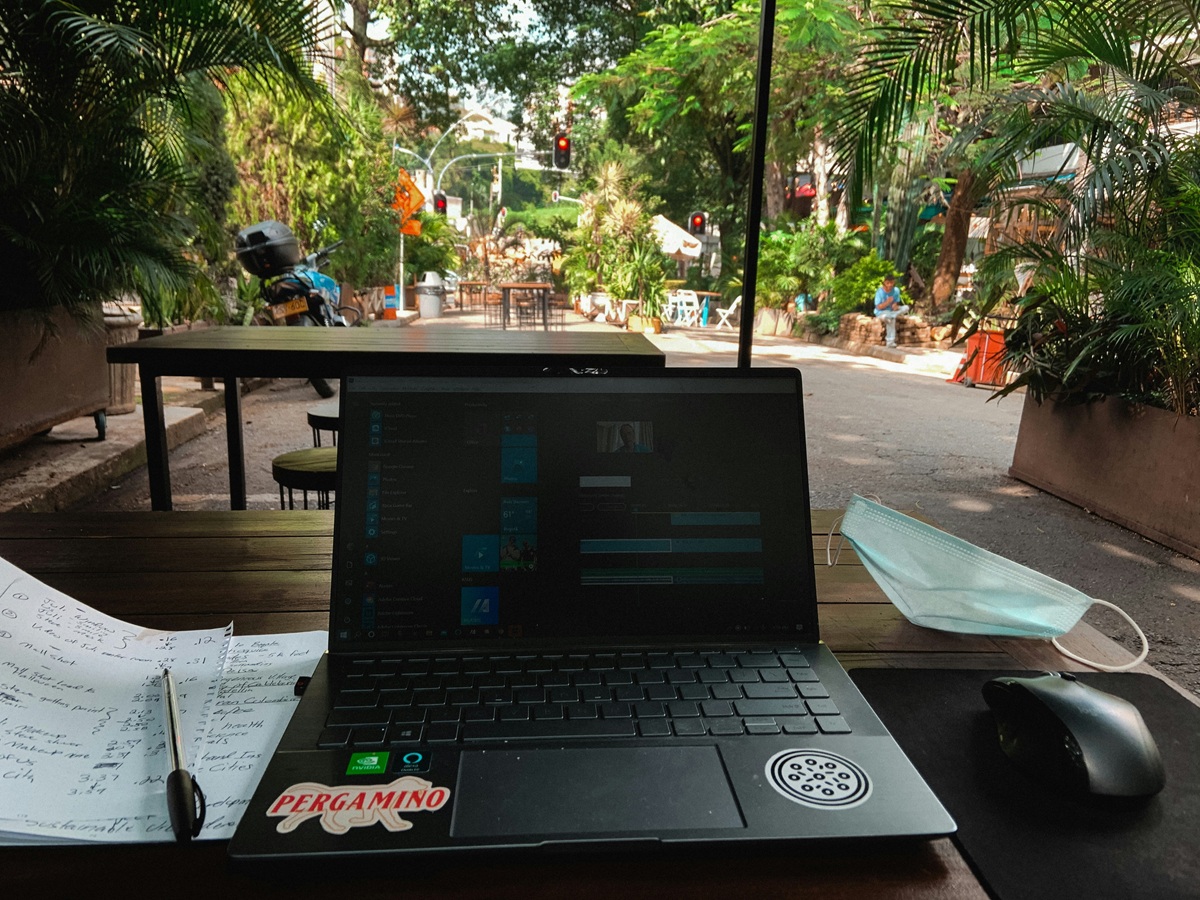Introduction: How to Start Working Remotely with No Experience Starting to work remotely is currently the easiest in the presence of technology. Imag
Introduction: How to Start Working Remotely with No Experience
Starting to work remotely is currently the easiest in the presence of technology. Imagine sipping your coffee from the comfort of your home, avoiding morning traffic, and setting your own schedule while at the comfort of your home—sounds like a dream. The remote work lifestyle is no longer reserved for the elite or the tech-savvy. In 2025, working remotely is more accessible than ever—even with no experience. How to Start Working Remotely with No Experience is the key to success.

Feeling overwhelmed or unsure where to start, take a deep breath and relax. You’re not alone. Thousands of people—which include the students, stay-at-home parents, career changers, and even retirees—are starting fresh online. The good news is you can too.
In this post, we’ll take you through exactly how to get started with remote work—from understanding the basics to finding your first paying means—no past experience required.
1. Shift Your Mindset: You Already Have Valuable Skills
Let’s start with the truth — you don’t need to be a tech wizard or have years of experience to get hired remotely. What matters more is your mindset and willingness to learn.
Think about this:
-
Do you know how to use email?
-
Can you follow instructions?
-
Are you willing to learn new tools like Zoom or Google Docs?
If you answered yes, you’re already ahead of the game.
Companies today care more about reliability, communication, and a strong work ethic than a perfect resume. They’re looking for people who show up, learn quickly, and deliver results — and that can be you.
2. Understand What Jobs Are Available for Beginners—How to Start Working Remotely with No Experience
Not all remote jobs are created equal. Some require specific degrees or years of experience, but many entry-level remote jobs are designed for beginners. The key is to find roles that match your current skill set—or ones you can easily learn.
Here are beginner-friendly remote jobs that you can start applying for today:
✅ Virtual Assistant (VA)
VAs handle tasks like responding to emails, scheduling meetings, creating documents, and organizing digital files. It’s like being a personal assistant working online.
✅ Customer Support Representative
If you’re a good communicator and patient with people, this is for you. You’ll answer questions via chat, phone, or email.
✅ Online Tutor
You don’t need a teaching degree to help someone learn English, math, or even basic computer skills. Sites like Cambly let you teach from home. A tutor will take students through from starting to graduation level.
✅ Freelance Writer or Content Creator
If you enjoy writing, blogging, or storytelling, there are countless companies and websites looking for content—and they often pay per article. This has employed lots of people. This shows you how to start working remotely with no experience.
✅ Social Media Assistant
Help manage Instagram pages, reply to DMs, create captions, or schedule posts for businesses or influencers.
✅ Transcriptionist
If you have good listening and typing skills, you can get paid to turn audio files into text.
✅ Data Entry Clerk
A simple job where you input data from spreadsheets, PDFs, or scanned documents into digital systems.
These roles usually require basic computer skills, internet access, and consistency—not years of experience.
3. Learn the Basics (For Free or Cheap) How to Start Working Remotely with No Experience
The best part about remote work? You can learn everything online—often for free. Before you start applying, spend some time sharpening a few key skills. Here’s where you can start from for guidance:
-
Google Digital Garage—Learn digital skills and get certified (great for your resume)
-
Coursera—Offers beginner-friendly courses from top universities
-
YouTube—Search tutorials on Excel, Canva, remote tools, etc.
-
HubSpot Academy—Free certifications in marketing, sales, and customer support
-
Udemy—Affordable courses in freelancing, writing, and virtual assistant work
Even dedicating one hour a day can make a huge difference in your skill level and confidence.
4. Create a Resume That Highlights Transferable Skills
Are you worried that your resume is empty? Don’t be. Even if you’ve never worked remotely, you still have relevant skills—from school, volunteering, raising kids, or part-time work.
Here’s how to frame it:
-
Time management—Mention how you managed school deadlines, family routines, or side hustles.
-
Communication—Include experiences like customer service, tutoring, or leadership roles.
-
Tech familiarity—List tools you’ve used: Zoom, Gmail, Trello, Canva, or MS Office.
Use a clean template from Canva, Novoresume, or Zety and keep it simple, focused, and professional.
5. Start Small with Freelance Platforms
If you’re completely new, freelance websites are the best place to build your experience and earn your first few dollars online. These platforms allow you to apply for gigs, grow your portfolio, and get client feedback—all without needing a traditional job.
Some of the best beginner-friendly platforms include
-
Fiverr—Offer services starting at $5 (writing, design, data entry, voiceovers)
-
Upwork—Bid on jobs posted by clients worldwide
-
PeoplePerHour—Great for admin and content work
-
Freelancer.com—Offers small gigs for new users
-
Toptal or Contra—more advanced, but great for scaling later
💡 Tip: Don’t wait for the perfect opportunity—take smaller jobs to build reviews. Even a $20 task can open doors later.
6. Build a Portfolio—Even Without Clients
“But how can I show what I can do if I’ve never worked online?”
Simple—create mock samples of the work you want to get paid for. Here’s how:
-
Want to write? Publish a few blog posts on Medium.
-
Want to do design? Create a free Canva portfolio.
-
Want to do admin work? Make a simple Google Sheet for managing schedules.
-
Want to manage social media? Build a small Instagram account and show sample posts.
This shows initiative—and sets you apart from other beginners.
7. Use Remote Job Boards With Entry-Level Filters
Many websites specifically focus on remote and work-from-home opportunities. You can filter results to show only beginner-friendly or no-experience-needed jobs.
Try these platforms:
-
We Work Remotely
-
Remote OK
-
Remotive.io
-
JustRemote
-
Jobspresso
-
Indeed.com—Use keywords like “Remote + Entry Level.”
Create profiles, set up job alerts, and apply weekly. Consistency is key.
8. Personalize Every Application
A mistake many beginners make is copying and pasting the same resume and cover letter to every job. Don’t do that.
Instead, tailor each application with
-
Why you’re excited about that specific role
-
How your skills match their needs
-
Your commitment to learning and delivering value
You may not have experience, but your attitude, effort, and attention to detail will stand out.
9. Prepare for Remote Interviews
Once you start applying, be ready for online interviews. Here’s how to stand out:
-
Dress well, even on Zoom.
-
Check your camera, audio, and background.
-
Practice answering basic questions like
-
Why do you want to work remotely?
-
What are your strengths and weaknesses?
-
How do you stay focused while working from home?
-
Confidence and preparation will take you far—even if your resume is light.
10. Stay Consistent—and Don’t Give Up
Remote job hunting can feel overwhelming at first. You may face rejection or weeks of no response. That’s normal.
But here’s the truth: most successful remote workers didn’t get lucky—they got persistent.
-
Apply for 3–5 jobs every day
-
Keep improving your resume and cover letters
-
Continue learning skills weekly
-
Celebrate small wins (first job, first reply, first $10)
Your first client might just be one email away.
Real-Life Examples: People Who Started from Zero
-
Sarah, a mom of two, started as a virtual assistant earning $8/hour. Now she runs her own agency with four clients.
-
Jamal, a former delivery driver, taught himself transcription via YouTube. Today, he earns $1,500/month working part-time.
-
Emily, a college dropout, built a portfolio of blog posts on Medium. A marketing agency found her work and hired her full-time.
If they can do it, so can you.
Bonus: Tools to use on How to Start Working Remotely with No Experience
Here are some free or cheap tools that make your remote work journey smoother:
| Tool | Purpose |
|---|---|
| Canva | Resume design, social media content |
| Grammarly | Grammar and writing improvement |
| Trello | Task and time management |
| Notion | Digital workspace & job tracking |
| Zoom | Video calls and interviews |
| Slack | Team communication |
| Google Drive | Document sharing and storage |
Final Words: Your Remote Career Starts Now—How to Start Working Remotely with No Experience
Getting a remote job with no experience might feel intimidating—but it’s entirely possible. The world of online work is growing every day, and it’s waiting for people like you: self-motivated, flexible, and ready to learn.
You won’t have it all figured out on Day 1—and that’s okay. Take it one step at a time. Learn something new. Apply for one job. Send one email. Write one article. Start small—but start now.
Your first online paycheck is closer than you think.




COMMENTS